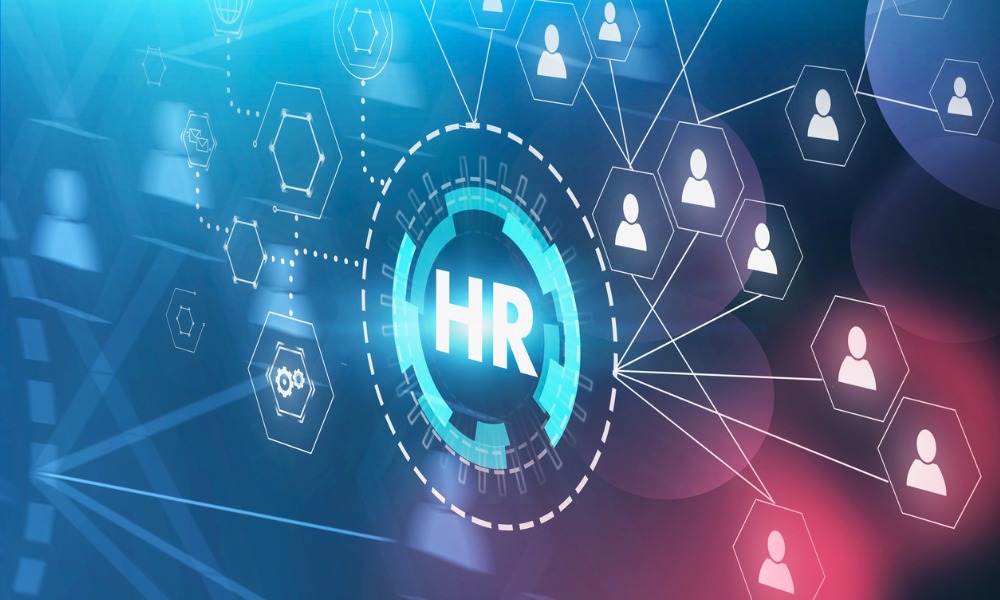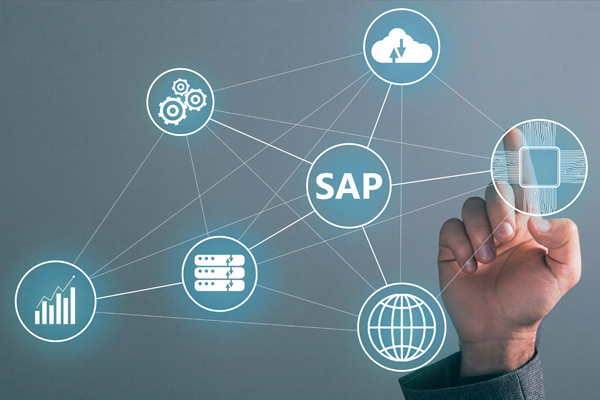How HRIS Systems Revolutionize Human Resources Management

Table of Contents
HRIS Systems In the dynamic landscape of modern business, managing human resources efficiently is paramount. Human Resources Information Systems, commonly known as HRIS Systems, have emerged as game-changers in this realm. They offer a suite of tools designed to streamline HR processes, enhance data accuracy, and improve overall organizational efficiency. Let’s delve into how HRIS Systems revolutionize human resources management and propel businesses toward success.

The Fundamentals of HRIS Systems
At its core, an HRIS System is a software solution that integrates various HR functions into one cohesive platform. These systems manage employee data, payroll, recruitment, benefits administration, performance analysis, and more. The objective is to automate and simplify HR processes, freeing up valuable time for HR professionals to focus on strategic initiatives.
Streamlining Administrative Tasks
Centralized Data Management
One of the most significant advantages of HRIS Systems is centralized data management. Gone are the days of sifting through endless spreadsheets and filing cabinets. With an HRIS System, all employee information is stored in a single, secure database. This centralization not only improves data accuracy but also makes information retrieval instantaneous, saving time and reducing errors.
Automated Payroll and Benefits
Managing payroll and benefits manually is a labor-intensive process prone to mistakes. HRIS Systems automate these tasks, ensuring that calculations are precise and payments are timely. Automation also extends to tax compliance, reducing the risk of penalties due to human error. Employees can easily access their payroll and benefits information through self-service portals, increasing transparency and satisfaction.
Efficient Onboarding
The onboarding process sets the tone for a new hire’s experience. HRIS Systems streamline onboarding by automating document collection, training schedules, and task assignments. New employees can complete paperwork digitally, access training materials online, and track their onboarding progress, leading to a smoother and more efficient transition into the company.
Enhancing Recruitment and Talent Management
Streamlined Recruitment Process
Finding the right talent is critical to any organization’s success. HRIS Systems revolutionize recruitment by automating job postings, application tracking, and candidate evaluations. Recruiters can efficiently manage large volumes of applications, schedule interviews, and communicate with candidates. Advanced analytics help identify the best candidates quickly, reducing the time-to-hire and ensuring a better fit for the role.
Talent Development and Retention
Retaining top talent is as important as recruiting it. HRIS Systems facilitate continuous talent development through performance tracking, training management, and career pathing. HR professionals can monitor employee performance, identify skill gaps, and recommend relevant training programs. This proactive approach to talent management not only enhances employee satisfaction but also reduces turnover rates.
Empowering Data-Driven Decision Making
Comprehensive Analytics and Reporting
Informed decision-making relies on accurate and timely data. HRIS Systems provide robust analytics and reporting capabilities, offering insights into various HR metrics such as employee turnover, absenteeism, and performance trends. These insights enable HR leaders to make data-driven decisions that align with organizational goals and drive strategic initiatives.
Predictive Analytics
The power of predictive analytics within HRIS Systems cannot be overstated. By analyzing historical data, these systems can forecast future trends and identify potential challenges. For instance, predictive analytics can highlight patterns in employee turnover, allowing HR teams to implement retention strategies proactively. This forward-thinking approach empowers organizations to stay ahead of the curve.
Improving Employee Experience
Self-Service Portals
Employee satisfaction is closely tied to their ability to access and manage their information easily. HRIS Systems offer self-service portals where employees can update personal information, request time off, view pay stubs, and enroll in benefits programs. This autonomy reduces the administrative burden on HR teams and enhances the overall employee experience.
Enhanced Communication
Effective communication is the backbone of any successful organization. HRIS Systems streamline internal communication through integrated messaging and notification features. Employees can receive important updates, access company policies, and participate in surveys directly through the system. This fosters a culture of transparency and engagement.
Ensuring Compliance and Security
Regulatory Compliance
Navigating the complex landscape of labor laws and regulations can be daunting. HRIS Systems simplify compliance by automatically updating to reflect changes in legislation. They also generate compliance reports and audit trails, ensuring that all HR activities adhere to legal standards. This reduces the risk of costly fines and legal complications.
Data Security
In an era where data breaches are increasingly common, ensuring the security of sensitive employee information is paramount. HRIS Systems implement robust security measures, including encryption, access controls, and regular security audits. These measures protect against unauthorized access and data breaches, safeguarding both the organization and its employees.
Real-World Impact: Success Stories
Case Study 1: Tech Startup
A rapidly growing tech startup struggled with managing its expanding workforce and keeping up with HR demands. Implementing an HRIS System revolutionized their HR operations. They experienced a 40% reduction in administrative tasks, streamlined their recruitment process, and improved employee satisfaction through self-service features. This allowed the HR team to focus on strategic initiatives, driving the company’s growth.
Case Study 2: Healthcare Provider
A mid-sized healthcare provider faced challenges in maintaining compliance with ever-changing healthcare regulations. By adopting an HRIS System, they automated compliance tracking, ensuring adherence to regulations without manual intervention. The system also enhanced their talent management efforts, resulting in a more engaged and skilled workforce. The overall efficiency gains led to improved patient care and organizational performance.
Case Study 3: Manufacturing Firm
A manufacturing firm with a large workforce needed a solution to manage payroll and benefits efficiently. Their HRIS System automated these processes, eliminating payroll errors and ensuring timely payments. The self-service portals empowered employees to manage their benefits and time-off requests, reducing the administrative burden on HR staff. This improved employee morale and allowed the HR team to focus on workforce development.
Overcoming Implementation Challenges
Selecting the Right HRIS System
Choosing the right HRIS System requires careful consideration of the organization’s needs and goals. It’s essential to evaluate various systems, compare features, and select a solution that aligns with the company’s size, industry, and HR requirements. Engaging stakeholders from different departments can provide valuable insights and ensure the chosen system meets everyone’s needs.
Change Management
Implementing an HRIS System often involves significant changes to existing processes. Effective change management is crucial to ensure a smooth transition. This includes communicating the benefits of the system to employees, providing comprehensive training, and offering ongoing support. Involving employees in the implementation process can also foster a sense of ownership and reduce resistance to change.
Data Migration
Migrating data from legacy systems to an HRIS System can be complex and time-consuming. It’s vital to plan the data migration process meticulously, ensuring data accuracy and completeness. Conducting data audits, cleaning up outdated information, and establishing clear data migration protocols are essential steps to ensure a successful transition.
The Future of HRIS Systems
Integration with AI and Machine Learning
The future of HRIS Systems lies in their integration with artificial intelligence (AI) and machine learning. These technologies can enhance predictive analytics, automate routine tasks, and provide personalized employee experiences. For instance, AI-driven chatbots can handle employee inquiries, while machine learning algorithms can identify patterns in employee behavior and recommend tailored development programs.
Enhanced Mobility
As remote work becomes more prevalent, the need for mobile-friendly HRIS Systems is increasing. Future systems will offer enhanced mobile capabilities, allowing employees and HR professionals to access information and perform tasks from anywhere. This mobility will further improve efficiency and employee satisfaction.
Focus on Employee Well-being
The next generation of HRIS Systems will place a greater emphasis on employee well-being. This includes features that track employee engagement, monitor stress levels, and offer wellness programs. By prioritizing employee well-being, organizations can foster a healthier, more productive workforce.
HRIS Systems
The impact of HRIS Systems on human resources management is profound. They streamline administrative tasks, enhance recruitment and talent management, empower data-driven decision-making, improve employee experiences, and ensure compliance and security. By adopting an HRIS System, organizations can revolutionize their HR operations, driving efficiency and strategic growth. As technology continues to evolve, the potential of HRIS Systems will only expand, offering even more innovative solutions to the ever-changing challenges of human resources management.





